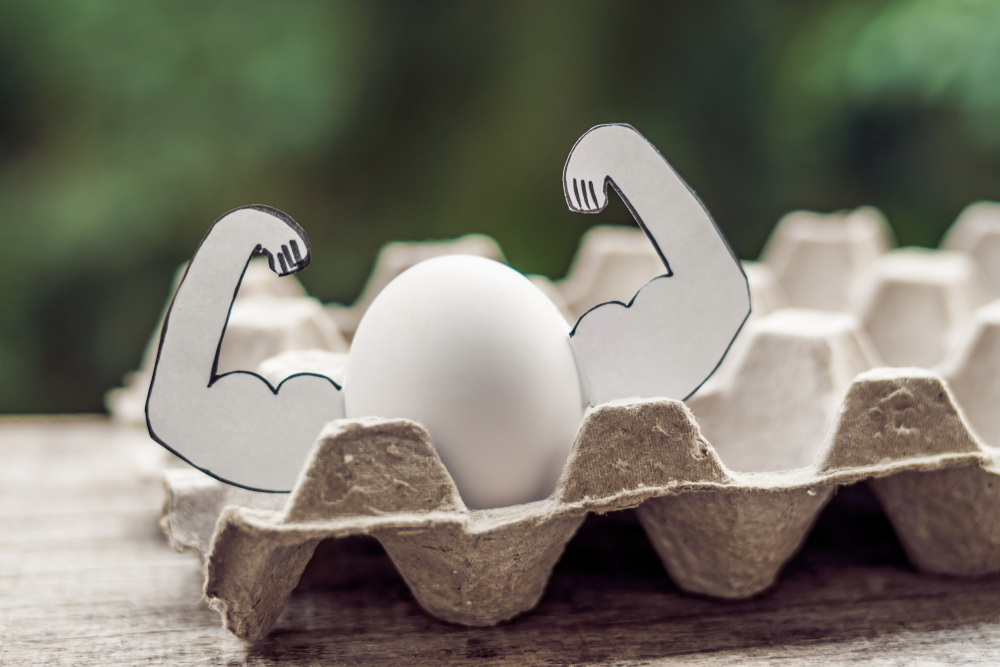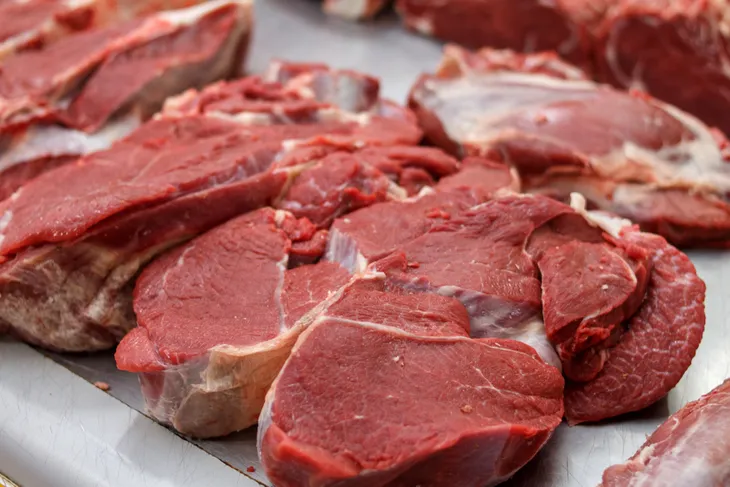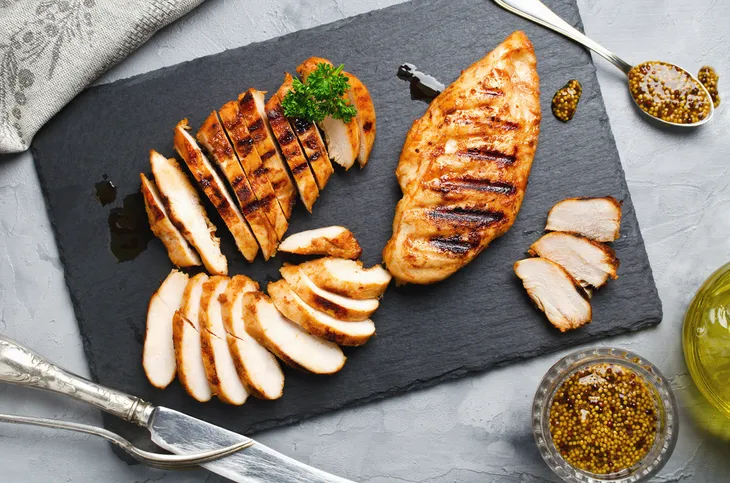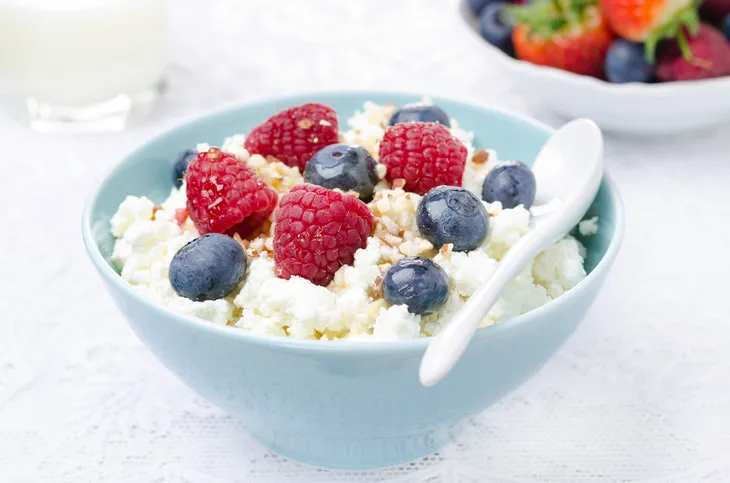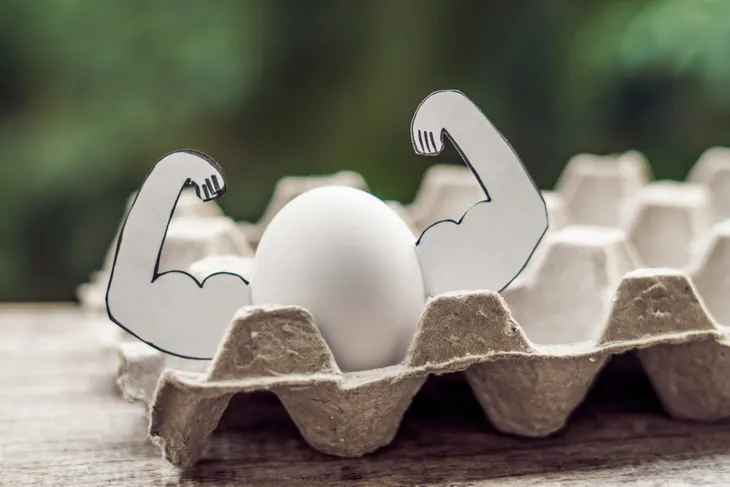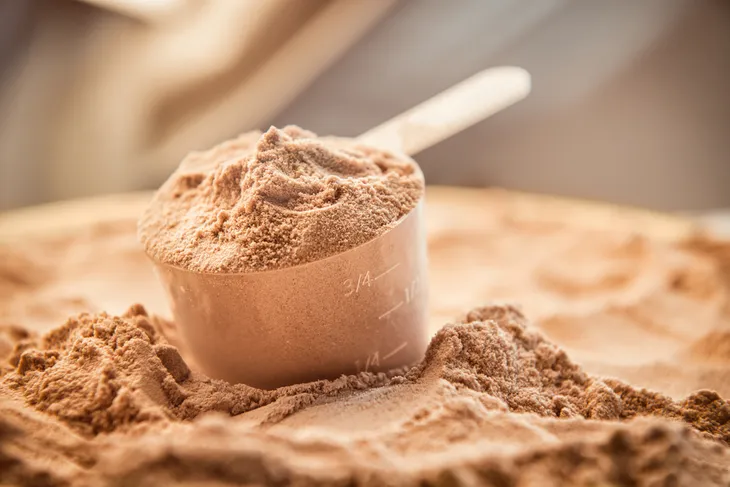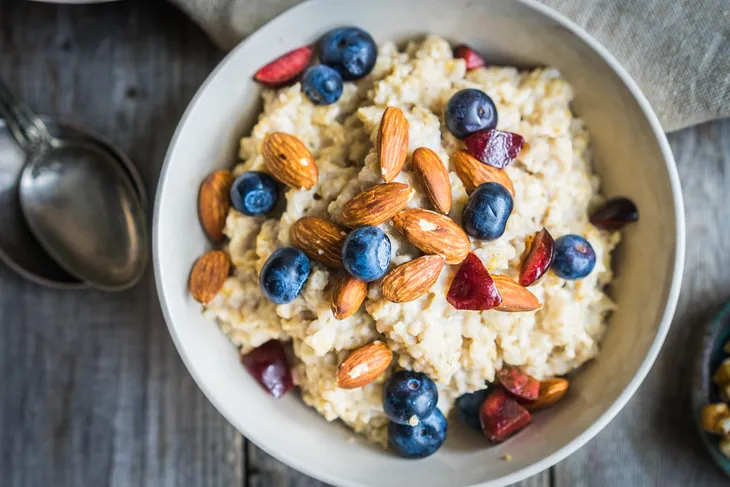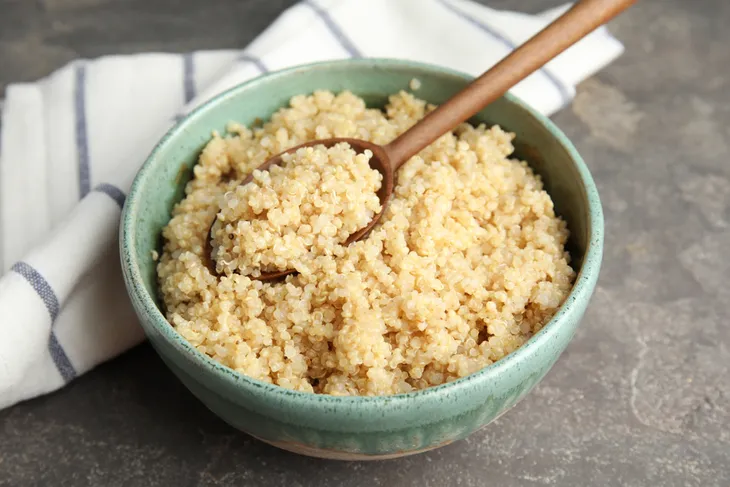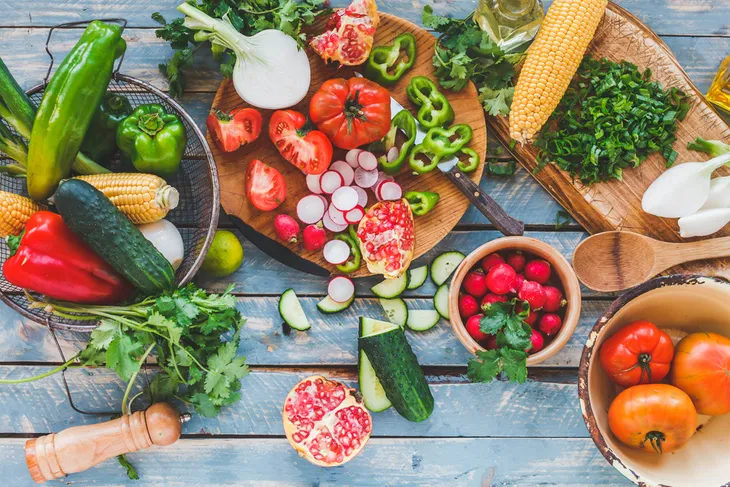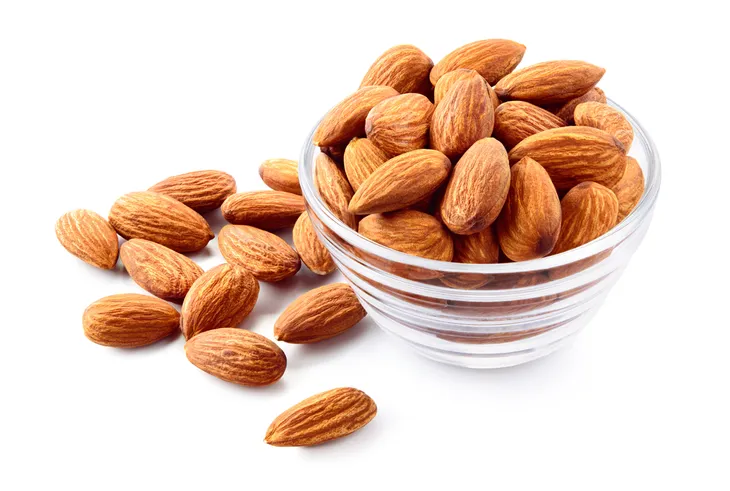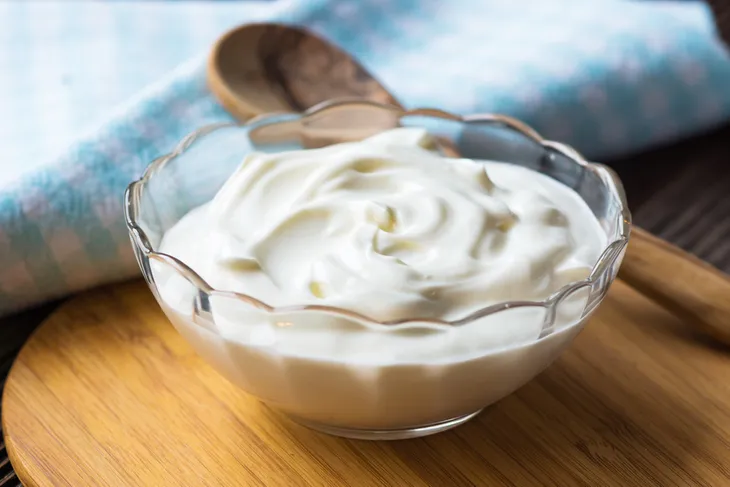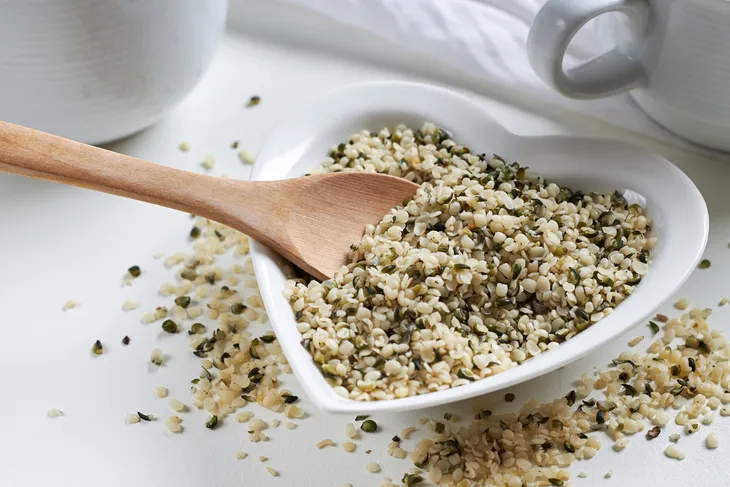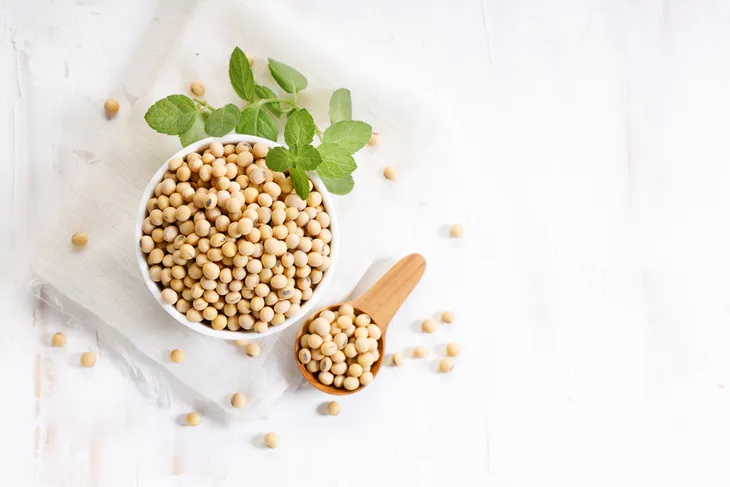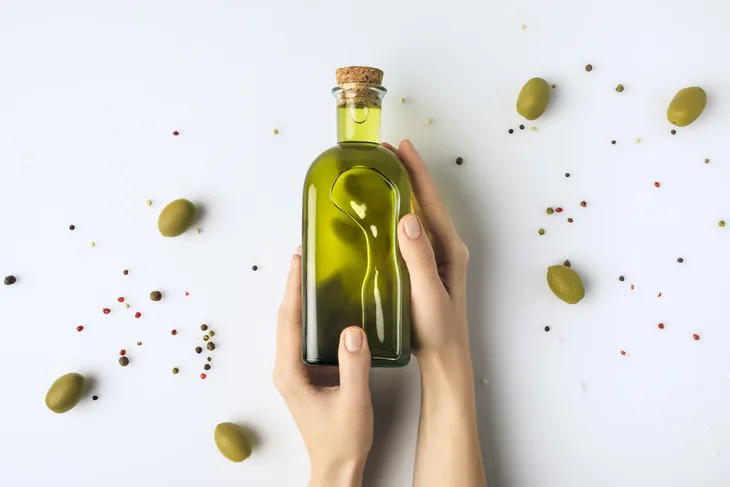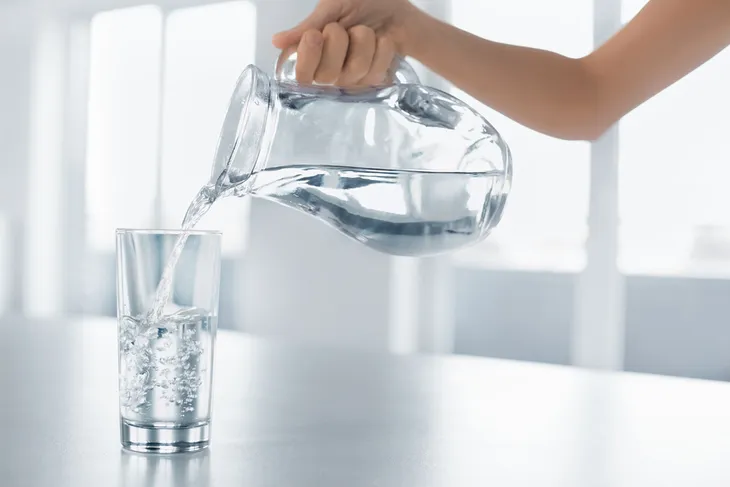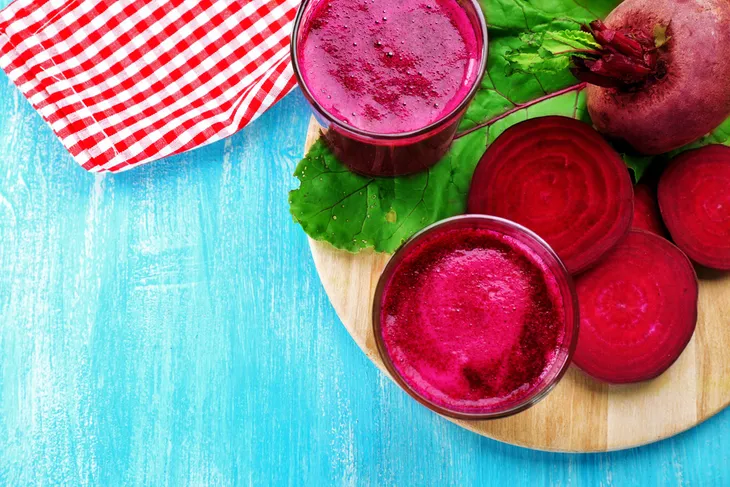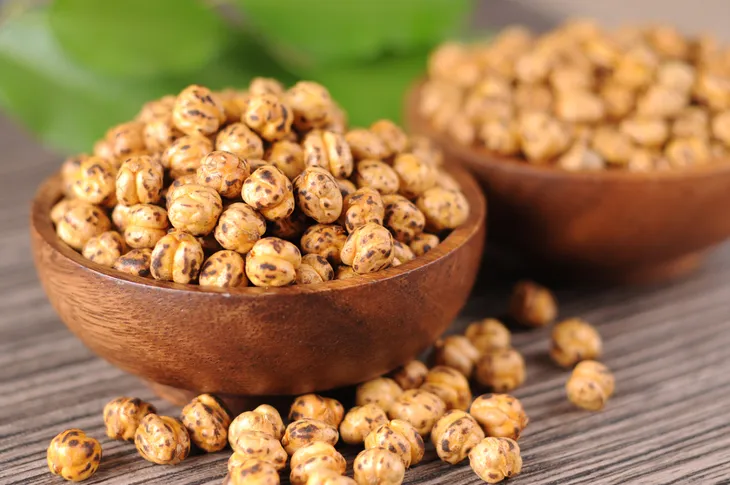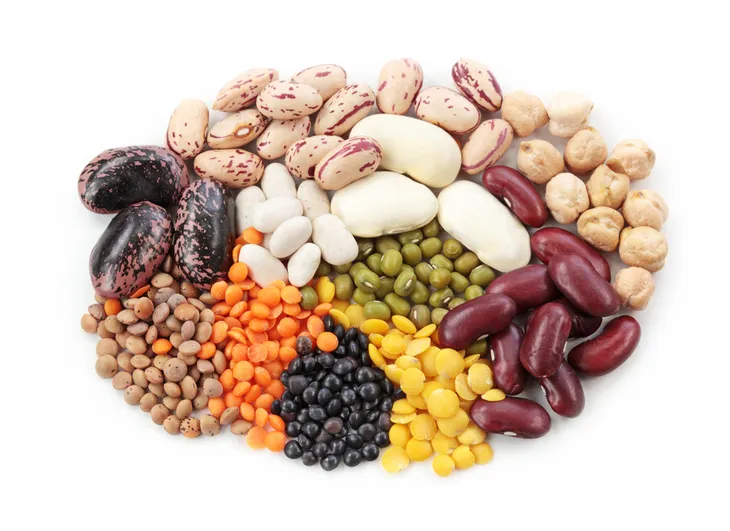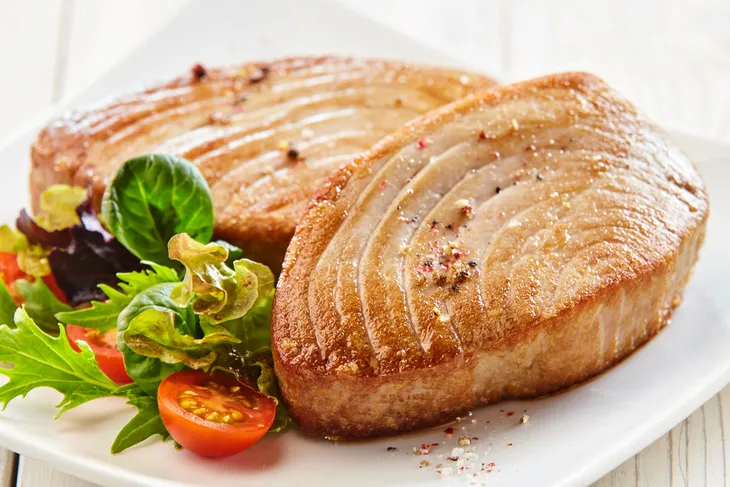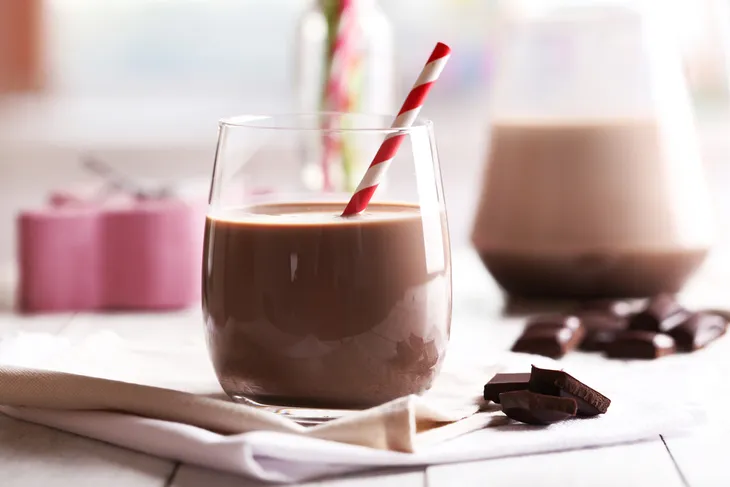Building muscle is more than just lifting weights. It’s a total body experience that goes beyond the gym and right into your kitchen. In fact, one could easily argue that there’s nothing more important to a muscle-building routine than an effective diet filled with the right types of protein, carbohydrates, and fats.
The foods presented in this list will not only help you prepare for a workout, but they’ll also help your body recover from each muscle-building exercise. Let’s get started…
Want diet & nutrition content delivered straight to your inbox? Sign up for our exclusive diet & nutrition newsletter!
Lean Beef
Lean beef should be the cornerstone of any muscle-building diet. That’s because it features many of the components necessary for gaining muscle mass, from essential nutrients—including iron, zinc and vitamin B—to high-quality protein.
Beef also features high levels of amino acids which can promote healthy muscle growth. Finally, lean beef (and it’s key to place an emphasis on “lean”) is low in calories and unhealthy fats, so it won’t cause you to gain the wrong kind of weight.
Chicken
Chicken, like beef, is high in protein and low in fat. This makes it an ideal food in building, maintaining, and repairing muscle affected by a muscle-building program. The high-quality protein in chicken is also helpful in enhancing bone health and maintaining a healthy body weight.
Of course, the key is to prepare your chicken in a healthy way. Try to avoid deep fried chicken and instead grill it on the BBQ or in a pan with a small amount of olive or canola oil. Also, be sure to remove the fatty skin before eating it.
Cottage Cheese
Unlike many other types of cheese, cottage cheese is high in protein and low in fat. It also contains pure casein protein, a slow-digesting type of protein that enhances muscle growth while keeping us feeling full and away from unhealthy foods that can ruin a diet.
Cottage cheese is also a great way to acquire a number of vital nutrients, including vitamin B12, calcium, vitamin D, vitamin A, and magnesium. When buying cottage cheese, be sure to choose the type that’s low in sodium and fat.
Eggs
Let’s get this out of the way: eggs do contain both cholesterol and fat, but they’re also packed with high-quality protein and a wide variety of essential nutrients. On top of that, they’re a great source of vitamin D.
If you’re hung up on eggs’ fat content, remember that this will help keep you full, particularly if they’re eaten first thing in the morning. And if you just can’t get over the fat issue, try egg whites which contain all of the protein in eggs and none of the fat.
Whey Protein
Whey protein offers a simple and convenient way to boost your protein intake. It’s essentially a powder containing very high-quality protein that can be added to just about anything—a smoothie, your breakfast cereal, or just straight-up milk.
The key, of course, is to find a well-reviewed whey protein. The cheap stuff is not only lower in protein, but it often tastes awful, no matter what you do with it. Also, don’t rely on whey protein for all of your protein—be sure to eat lots of fruit, vegetables, and lean meats, too.
Salmon
Like chicken, fish is very high in protein and very low in fat. But many types of fish—and particularly salmon—contain omega-3 fatty acids, which have been shown to benefit our health in a variety of ways. For the purpose of gaining muscle mass, omega-3 fatty acids can boost metabolism and energy levels, both of which are crucial to any workout routine. Healthline writes that one 3-ounce serving of salmon contains 17-grams of protein, 2-grams of omega-3 fatty acids, and several B vitamins.
Of course, not all types of fish are created equal. Be sure to avoid those types of fish with very high mercury levels, such as tilefish and king mackerel.
Oatmeal
Oatmeal is an excellent breakfast option. It’s packed with high-fiber whole grains and is slowly digested, keeping you feeling full longer than most breakfast choices. That’s largely because it’s minimally processed, which means it’s got a low the glycemic index (GI) value.
Oatmeal is also rich in many nutrients that help build, maintain, and repair muscle—including omega-3 fatty acids, folate, and potassium. Finally, not only does it contain protein, but it mixes well with whey protein powder.
Quinoa
If you’re building muscle, you need to consume protein-heavy foods. “Complete proteins contain all nine essential amino acids that your body needs, but can’t produce on its own,” explains Lisa Davis, PhD, chief nutrition officer at Terra’s Kitchen when talking to Reader’s Digest. When most of us think of these protein packed foods, our minds gravitate towards meat, but you don’t have to eat mounds of meat to gain muscle. Most vegetarians and vegans get their protein from quinoa.
Quinoa is a protein-dense grain that’s native to South America. Not only is it packed with high-quality protein, but it’s also an excellent source of many essential amino acids. It’s also gluten free, meaning it won’t hurt people with celiac disease, and it’s very high in fiber – meaning it will keep you going.
Fruits and Vegetables
It’s important to remember that eating to gain muscle isn’t just about ingesting an endless supply of meat, like beef, chicken, and turkey. You also need access to a rich source of antioxidants, which many fruits and vegetables can provide.
Fruits and veggies can also be relied upon to provide other valuable nutrients, from vitamin C and vitamin E to beta-carotene—all of which benefit the muscle-building process. Finally, fruits and veggies contain fiber, which will keep you feeling full and less interested in unhealthy foods that can sidetrack an effective diet.
Almonds
Almonds are an excellent source of protein (a handful boasts more protein than an egg) and provide you with the healthy fats that will keep you going throughout the day. They’ve been shown to raise levels of high-density lipoproteins (HDL, or “good” cholesterol), while lowering low-density lipoproteins (or “bad” cholesterol).
Almonds are also packed with monounsaturated fats shown to reduce the risk of heart disease. The key is to pick up raw or roasted almonds that haven’t been cooked in heavy oil or salt.
Greek Yogurt
We talk a lot about protein in this article because we most often associated protein with muscle, but calcium is another nutrient that is super important for the basic reason that we need strong bones in order to have strong muscles. “Calcium plays a critical role in both the contraction and relaxation of your muscles,” says Krissy Kendall, PhD, of bodybuilding.com to Reader’s Digest. In fact someone who is low in calcium will often suffer from muscle cramps which can make body building extremely difficult.
When choosing what yogurt to eat, always go for greek yogurt because it has more protein. “Greek yogurt contains almost twice the protein of regular yogurt, plus it has gut-friendly probiotics and bone-strengthening calcium,” explains Kendall. You should also stick with plain, fat-free yogurt that has no added sugar. If plain isn’t appealing enough for you, sweeten it up with some honey or fresh fruit.
Hemp Seeds
You might not have heard of hemp seeds, sometimes referred to as hemp hearts, let alone ever tried eating them before, but they’re actually quite high in protein which means they are a great choice for anyone looking to build muscle. Reader’s Digest suggests consuming about 3-tablespoons of hemp seeds a day because this small amount will provide a whopping 10-grams of protein and a good dose of omega-3 fatty acids.
The source just advises being careful about portion size because the calories can add up quickly. Each tablespoon adds up to 50-calories and while the fat from them is considered “heart-healthy,” it’s still advised that they are enjoyed in moderation. You can easily enjoy hemp seeds by adding them to a salad, smoothie, on top of some yogurt, or oatmeal.
Soybeans
Soybeans which are used to make foods like soy milk, tempeh, miso, and tofu, are great for building muscle because like many of the other foods on this list, they are high in protein. Just 1-cup of soybeans packs about 37-grams of protein. “Firm tofu packs 10-grams of protein per half cup, and the firmer the better when it comes to the amount of protein,” says Lisa David, PhD, chief nutrition officer at Terra’s Kitchen when talking to Reader’s Digest.
Not only is it rich in protein, the source also points out that soybeans are high in magnesium which can be used to increase energy metabolism, repair muscle and encourage muscle growth. This is particularly important for people who are lifting weights in order to build muscle.
Reader’s Digest also talked to Krissy Kendall, PhD, of bodybuilding.com who reinforced how important magnesium is for muscle building by citing research that has shown taking supplements along with resistance training can increase strength. “Low levels can lead to fatigue, lethargy, reduced powered output, and muscle cramps,” says Kendall.
Olive Oil
Olive oil probably isn’t the first thing that comes to mind when thinking about how to load up and build muscle. However, Men’s Health talked to Doug Kalman, R.D., director of nutrition at Miami Research Associates who explained that olive oil contains monounsaturated fat which “appears to act as an anti catabolic nutrient.” This basically means that it prevents muscle breakdown by “lowering levels of a sinister cellular protein called tumor necrosis factor-a, which is linked with muscle wasting and weakness,” writes the source.
In addition to all this, Men’s Health also notes that olive oil contains monounsaturated fats which have been linked to lowered risk of heart disease, colon cancer, diabetes and osteoporosis. When possible, try to use extra-virgin olive oil because it has higher levels of vitamin E. Either way, the switch from vegetable oil to olive oil is a no brainer!
Water
Even though water isn’t technically a food, it plays a huge role when it comes to helping the body build muscle. Staying well hydrated is important for our overall health, no matter what the goal is — whether it’s building muscle or simply maintaining good health, we all need to drink lots of water on a daily basis.
For those who are building muscle, water helps because not only is our body mainly made up of water (about 70-percent), our muscle tissue is also about 75-percent water, says LiveStrong. Drinking lots of water will keep the muscles hydrated and help with digestion. The source recommends drinking about 0.6-ounces of water per pound of body weight every day.
“Even a change of as little as 1-percent in body water can impair exercise performance and adversely affect recovery,” says Jeff Volek, PhD, R.D., an exercise and nutrition researcher at the University of Connecticut to Men’s Health. The source cites a 1997 German study which found that well hydrated muscle cells experienced protein synthesis at a higher rate than those that were dehydrated. This basically means the better hydrated a person is, the better their body is able to use protein to build muscle.
Beets
Beets aren’t everyone’s favorite food, but there is no denying that they are good for you. Eat This, Not That! refers to several studies which found that eating beets can improve athletic performance. A study by the Kansas State University found that those who drank beet juice had a 38-percent increase in blood flow to their muscles, “particularly ‘fast twitch’ muscles that affect bursts of speed and strength.”
The source also cites another study published in the Journal of the Academy of Nutrition and Dietetics which found that runners who ate beets before a 5-km race were able to increase their speed by 5-percent. This result was “attributed to the beets’ nitrate, a natural chemical that increases endurance and lowers blood pressure.” This natural muscle-building compound is also present in spinach and carrots.
Chickpeas
Chickpeas are one of the best sources of protein for vegans and vegetarians. They are great because they offer lots of protein but without all the high-impact carbohydrates that can spike blood glucose levels, says LiveStrong.
Men’s Journal also lists chickpeas as a great food for building muscle and includes that 1-cup of chickpeas can provide 45-grams of “slow-acting carbs,” as well as 12-grams of fiber.
Beans
Similar to chickpeas, beans are relatively cheap and versatile. They are also loaded with fiber and protein, but at the same time nice and low in fat content. “Beans are a great source of protein that includes fiber,” says Leah Kaufman, MS, RD, CDN, CDE, a New York City-based registered dietitian to Eat This, Not That! “That’s going to ensure your blood sugar doesn’t spike and will give you energy to build the muscle you want.”
The source goes on to note that black beans are among the best bang for your buck because just 1-cup of black beans contains 12-grams of protein, 9-grams of fiber, lots of folate, a vitamin B that encourages muscle growth and copper which strengthens tendons.
Other popular varieties are pinto and kidney beans which also contain about 15-grams of protein per cup, says Healthline, and include fiber and B vitamins, as well as magnesium, phosphorus and iron.
Tuna
We already talked about the wonders of salmon, but tuna is another fish that can be used to help build muscle. A 3-ounce serving of tuna contains about 20-grams of protein and high levels of vitamin A and several B vitamins like B12, niacin and B6, writes Healthline. All of these nutrients are important for overall health, particularly improving energy and exercise performance.
Just like salmon, tuna also contains lots of healthy omega-3 fatty acids which support muscle health. Healthline notes that this is particularly true for “older adults where research has shown that omega-3 fatty acids can slow the loss of muscle mass and strength that occurs with age.”
Chocolate Milk
This one seems to good too be true, but according to several sources, chocolate milk is actually good when it comes to building muscle. LiveStrong cites a study published in the International Journal of Sports Nutrition and Exercise Metabolism which found that chocolate milk was effective at increasing exercise output and delaying exhaustion. The subjects who were given chocolate milk before cycling stationary bikes were able to pedal 49-percent longer than those who were given a different carb replacement beverage. Registered dietitian Julie Ching says, you only need 1-cup (about 8-ounces) of chocolate milk a day. Enjoy in moderation. It is meant to help to replenish after a workout.
According to Eat This, Not That!, chocolate milk contains electrolytes that contribute to muscle cell hydration which means it’s a great beverage to have after a good workout. “Chocolate milk is good for muscle recovery because you get protein, vitamin D, and calcium from the milk, and that little bit of sugar from the chocolate to help refuel,” says Ilyse Schapiro, MS, RD, CDN, a registered dietitian with practices in New York and Connecticut to the source.
